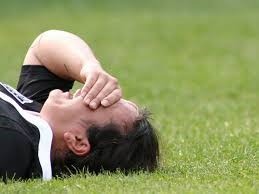Parshas Re’eh
Your Pain is My Pain!
“See, I present before you today a blessing and a curse.” (Devarim 11:26)
Many commentaries, including Rabbi Shimshon Chaim Nachmani (in sefer Zera Shimshon), ask the obvious question. Why does the pasuk begin with the word re’eh, “see,” in singular, while continuing the pasuk with the word lifneichem, “before you,” in plural?
Rabbi Shimshon Chaim Nachmani answers that Hashem is instructing every individual to see himself as part of the tzibbur, part of the nation. Whether Hashem is giving the nation blessings or even curses, every individual must see himself as part of the nation and should not separate himself from them.
The Talmud (Ta’anis 11A) says that Moshe Rabbeinu shared in the distress of the nation. During the war with Amalek, Moshe raised his hands to Hashem, praying for victory. When Moshe’s hands became heavy, he sat upon a stone (Shmos 17:12). Didn’t Moshe have a pillow or cushion to sit on? Why did he sit on a rock? Moshe said, “Since the Jewish People are immersed in pain, I, too, will be with them in suffering,” as much as I am able, although I am not participating in the fighting.
Hashem, Himself, shared in our suffering! Before the 10 Commandments were given, Moshe, Aharon, Nadav, Avihu and the 70 elders approached Mount Sinai. They noticed that under Hashem’s feet was the likeness of a brick pavement, made of sapphire. Those bricks were there from the time of the Egyptian slavery, as a constant reminder to Hashem of the servitude and pain to which the Jews had been subjected (Rashi on Shmos 24:10).
The Talmud (Ta’anis 11A) says, when the Jewish people are in distress, no individual should separate himself from the community. He should share in their suffering. If he does not, the two ministering angels who accompany him place their hands on his head, and say, “This man, so-and-so, who has separated himself from the community, should not see the consolation of the community”. Since he did not feel the pain of his people, therefore so he will not share in their communal happiness.
The Talmud continues and says, When the community is immersed in suffering, a person may not say: I will go to my home and I will eat and drink, and peace will be upon me. The Ben Yehodaya says, when the Jews are in distress then Hashem is also in distress. One who removes himself from the communal distress, shows that he is not bothered by Hashem’s distress!
The Ben Yehodaya says that in times of distress, the Jewish community does two things. After davening, they recite Tehillim and Slichos. They also fast during the day. This fellow removes himself from feeling the distress of the tzibbur. He goes home before the recitation of Tehillim and Slichos. When he enters his home, he eats a full meal and doesn’t fast. Since this person separates himself from the tzibbur, he will be punished.
We are 1 unit, a single, united tzibbur. If one doesn’t feel the pain of the tzibbur, one is showing that he does not care about the tzibbur or the pain that Hashem is feeling for the tzibbur. Thus, one who removes himself from the tzibbur, will forfeit the blessings given to the tzibbur.



